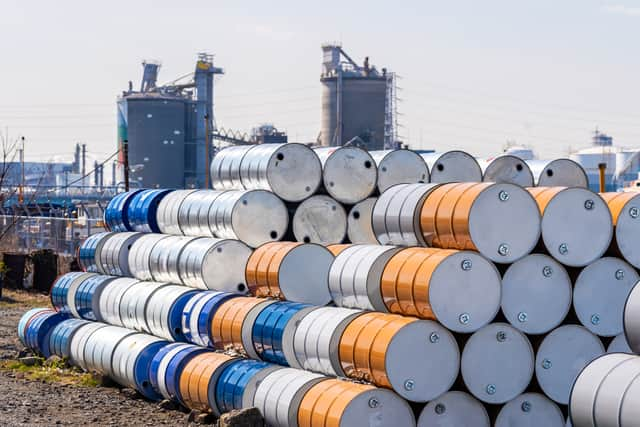UK petrol prices: why have they risen again and when will fuel prices go down?
Petrol prices jumped by an average of 10p per litre last month - the second largest monthly increase in history.
Unleaded finished May at a new record high, reaching an average of 174p per litre, according to figures from the RAC.
Advertisement
Hide AdAdvertisement
Hide AdDiesel also ended the month at a new record level - 183p per litre - although it rose by a smaller 5p per litre.
The latest prices mean it now costs £95 to fill the petrol tank of an average family car and more than £100 for an average diesel. That is £13 more for a petrol fill-up and £16.50 more for diesel than at the end of February.


Fresh rises in the price of oil along with the pound’s weakening status on global markets have been blamed for the latest increases and the RAC is predicting that petrol could soon hit 185p per litre while diesel is on course to reach 190p.
It has now called on the Government to take action in the form of further fuel duty cuts or a reduction in VAT to ease pressure on struggling motorists.
Advertisement
Hide AdAdvertisement
Hide AdAfter relative stability in April, May’s increase is the second-largest on record, just short of the 11.6p rise seen in March 2022 in the wake of Russia’s invasion of Ukraine.
Oil prices rose 17% in May from $106.07 at the start to $124.45 on 31 May. At the same time, the pound has lost value against the dollar and with oil traded in dollars this has pushed up the purchase price for UK retailers.
RAC fuel spokesman Simon Williams said May had been another “horrible” month for motorists.
He commented: “Since Russia invaded Ukraine on 24 February the price petrol has gone up 24p a litre, For diesel the figure is 30p. Both of these figures would have been even higher had the Government not cut fuel duty.
Advertisement
Hide AdAdvertisement
Hide Ad“While it’s hard to imagine prices getting much worse, the wholesale price of petrol has now gone above diesel which spells yet more bad news at the pumps in the coming weeks.”
“With drivers facing such a dire situation on the forecourts something needs to be done, whether that’s a further cut in duty, or a reduction in VAT from 20%. Arguably, a duty cut would make a bigger difference to both businesses and individuals, but it also seems very unfair that the Treasury is benefitting to the tune of 30p a litre in VAT revenue from the record high prices – as it’s effectively a tax on a tax.”
Comment Guidelines
National World encourages reader discussion on our stories. User feedback, insights and back-and-forth exchanges add a rich layer of context to reporting. Please review our Community Guidelines before commenting.
